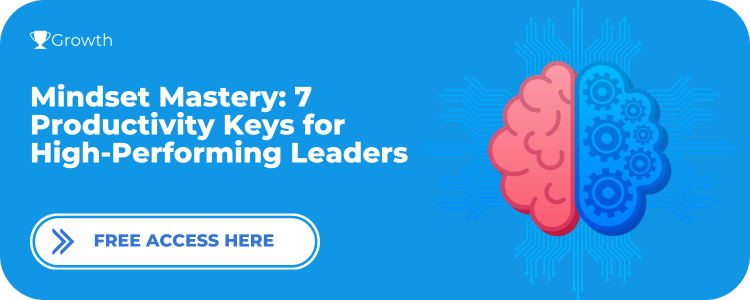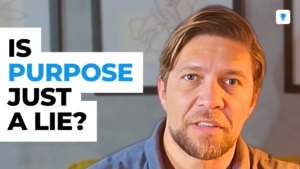
✅ FREE ACCESS: Mindset Mastery: 7 Productivity Keys For High-Performing Leaders
How can a growth mindset transform your approach to problem-solving?
Mindset precedes skillset. So you don’t solve problems with your actions, you solve problems with your frame of reference about the problem that will guide your actions.
Today, we’re going to learn the 3 essential steps to develop the growth mindset you need for effective problem-solving.
But before we get into it, make sure you grant your lifetime access to our free WorkBook: Mindset Mastery: 7 Productivity Keys for High-Performing Leaders.
This is your chance to make the mindset shift you need to bring your goals into reality.
Growth Mindset For Problem-Solving
In our ever-changing world, the ability to approach problems with a growth mindset is becoming more and more important.
So, let’s explore the advantages and practical strategies for cultivating a growth mindset that can empower you to tackle challenges head-on.
But what is a growth mindset in the first place?
A growth mindset is a belief that our abilities and intelligence can be developed through dedication, effort, and continuous learning.
It is a powerful mindset that opens doors to endless possibilities and fuels personal and professional growth.
In her book “Mindset: The New Psychology of Success,” Dr. Carol Dweck emphasizes that:
“In the growth mindset, failure can be a painful experience. But it doesn’t define you. It’s a problem to be faced, dealt with, and learned from”
This mindset fosters a passion for learning, a hunger for feedback, and a drive for continuous improvement.
So, how can we develop a growth mindset specifically for effective problem-solving?
Here are 3 essential steps:
Step #1: Play The Long Term Game
Problems are a great reminder that success is a process, not an event.
An event is instantaneous. It happens in a moment. It’s a short-term game.
A process is incremental. It happens in a multitude of moments. It’s a long-term game.
So, write this down:
Meaningful events are made of a multitude of processes.
The transformation of a problem into a solution is a process.
It might take mistakes, gradual implementation, multiple attempts, time, and adjustments to solve a problem.
That is challenging, painful, and worthy.
Because that process will lead to an event: the solution.
When facing problems, always remember that you are not playing the game of solving that problem.
You are playing the game of producing a reality where that kind of problem doesn’t exist because you elevated yourself and your environment beyond and above that paradigm.
This will change your perception of the problem from an obstacle to a stepping stone.
Step #2: Differentiate Knowledge from Understanding
Knowledge is a powerful tool for solving complex problems, but you don’t know what you don’t do. You only understand it.
To know about something, you need to live that.
Only by doing so, you can bring that from the conceptual to the actual world.
A growth mindset is a learning mechanism.
So, seize every chance to grow and keep tracking your progress.
One simple way of doing this is asking yourself this question every morning:
“What did I learn yesterday that I can use as a tool moving forward?”
Over time, you will train your mind to look for relevant cues during your days to serve as a productive answer to that question.
Needless to say, you also need to read, listen, watch, write, talk, and think about new concepts and ideas to transform your understanding into knowledge through application.
Step #3: Use an Effective Problem-Solving Schema
Solving problems requires a long-term game and learning mindset, as we just discussed, but also, a schema.
In psychology and cognitive science, a schema describes a pattern of thought or behavior that organizes categories of information and the relationships among them.
Think of a schema as a conceptual model or a framework.
So, a problem-solving schema is a framework you can apply to a given problem that will lead to its solution.
This requires a more detailed approach.
In the Mindset Mastery Workbook, you will learn how to solve complex problems using Dr. Alfred North Whitehead problem-solving schema called The 4 Processes of Thinking.
By granting your free lifetime access to this workbook today, you will not only master the art of problem-solving but also, have access to all future updates at no cost.




